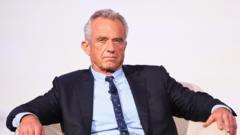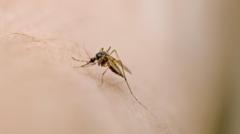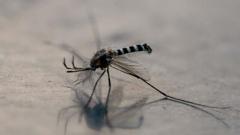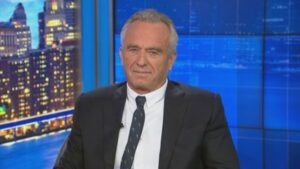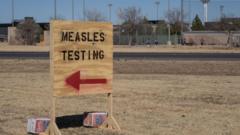Longtime vaccine skepticism and current vaccination trends raise concerns about a potential resurgence of polio, a disease that once caused widespread paralysis and death in the United States.
The Threat of Polio Resurgence Amidst Vaccine Hesitancy

The Threat of Polio Resurgence Amidst Vaccine Hesitancy
As vaccination rates decline, polio, once nearly eradicated in the U.S., could see a dangerous comeback.
In its original form, polio is now endemic only in two countries, but strains linked to oral vaccines have appeared in the West, igniting fears of new outbreaks. For many American parents, polio seems like a relic of the past—a distant memory fortified by successful vaccination programs. However, that could quickly change if immunization rates continue to stagnate.
Historical data reveals that polio once afflicted 20,000 individuals each year in the United States, resulting in numerous fatalities. Thanks to vaccines, new cases have dramatically decreased, with only one instance reported in recent years due to international travel.
Concerns are mounting with the rise of vaccine misinformation, particularly from figures like Robert F. Kennedy Jr. The prominent vaccine skeptic has challenged the narrative that polio has been nearly eradicated, calling it a “mythology.” While he claims vaccines are not as safe as the public is led to believe, his assertions have not been backed by scientific consensus.
Kennedy has controversially linked early polio vaccine contamination to cancer, claiming it resulted in more fatalities than polio itself. Despite the documented contamination issues, extensive research has not confirmed any causation between the vaccine and cancer.
As vaccine hesitancy grows, health authorities worry about the implications of a drop in vaccination rates, which could facilitate the return of polio and other preventable diseases. The ongoing dialogue highlights an urgent need for effective communication and education around vaccination.
Polio's global eradication efforts hang in the balance as ongoing challenges threaten the hard-won public health achievements over the past century.
Historical data reveals that polio once afflicted 20,000 individuals each year in the United States, resulting in numerous fatalities. Thanks to vaccines, new cases have dramatically decreased, with only one instance reported in recent years due to international travel.
Concerns are mounting with the rise of vaccine misinformation, particularly from figures like Robert F. Kennedy Jr. The prominent vaccine skeptic has challenged the narrative that polio has been nearly eradicated, calling it a “mythology.” While he claims vaccines are not as safe as the public is led to believe, his assertions have not been backed by scientific consensus.
Kennedy has controversially linked early polio vaccine contamination to cancer, claiming it resulted in more fatalities than polio itself. Despite the documented contamination issues, extensive research has not confirmed any causation between the vaccine and cancer.
As vaccine hesitancy grows, health authorities worry about the implications of a drop in vaccination rates, which could facilitate the return of polio and other preventable diseases. The ongoing dialogue highlights an urgent need for effective communication and education around vaccination.
Polio's global eradication efforts hang in the balance as ongoing challenges threaten the hard-won public health achievements over the past century.


